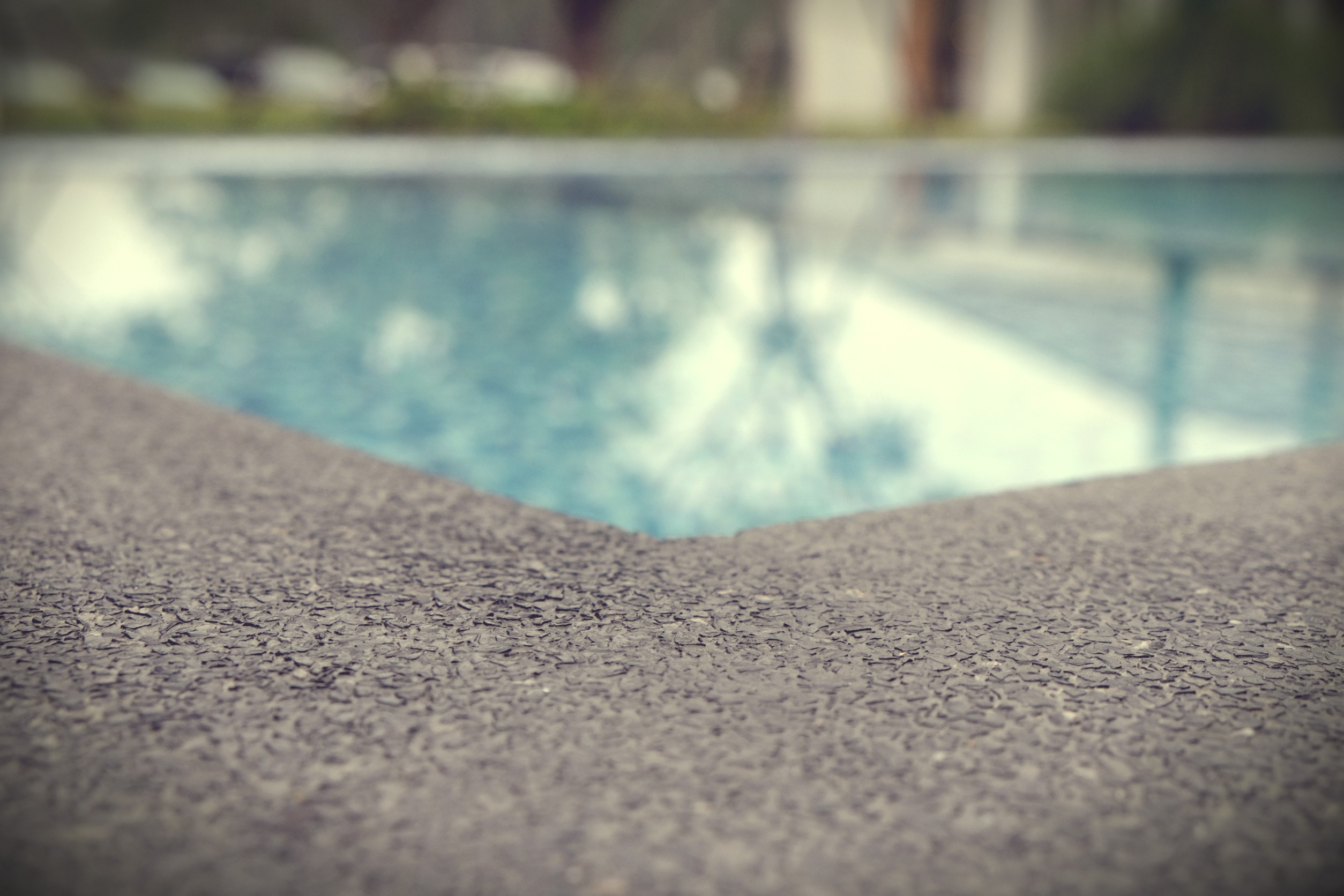Winter Pool Maintenance Myths Debunked

Winter Pool Maintenance Myths Debunked
- January 9, 2025
- Pools
As the temperature drops and the swimming season comes to a close, many pool owners may find themselves wondering how to care for their pools during the winter months. While pool maintenance during winter can seem straightforward, there are several misconceptions that could lead to costly mistakes or damage. Understanding the facts behind winter pool care is essential for keeping your pool in top shape and ready for use when the warm weather returns. Let’s dive into some common winter pool maintenance myths and debunk them with factual insights that can help pool owners maintain their pools effectively through the colder months.
Myth #1: “I Can Just Leave My Pool Open and Forget About It in Winter.”
One of the most common misconceptions is that pools can be left open during the winter and neglected until the next swimming season. While it’s true that your pool might not need the same level of attention in winter, leaving it entirely unchecked can lead to serious problems.
The Fact: Even in winter, your pool requires regular care. Pool water can still become unbalanced due to temperature fluctuations, rain, and debris. In addition, algae and bacteria can grow if the water chemistry is off or if debris is allowed to sit for long periods. Regular winter maintenance involves checking the pool’s water chemistry, skimming debris off the surface, and keeping the filter running intermittently. Doing so ensures that your pool is ready to go when warmer weather returns and prevents costly repairs.
Myth #2: “I Don’t Need to Winterize My Pool if I Live in a Mild Climate.”
If you live in a region with mild winters, you might believe that winterizing your pool isn’t necessary. After all, if temperatures don’t often drop below freezing, why not just keep it running throughout the year?
The Truth: Even in mild climates, winterizing your pool is essential for maintaining its long-term health. Winterizing isn’t just about protecting the pool from freezing; it also ensures that the water stays balanced and the system is safeguarded from potential damage due to lower usage. Without proper care, pool equipment, plumbing, and heaters could suffer wear and tear, leading to costly repairs down the line. Winterizing includes tasks such as cleaning the pool, adjusting the chemical balance, lowering the water level, and covering the pool to prevent debris buildup.
Myth #3: “Lowering the Water Level is the Same as Draining the Pool.”
Many pool owners believe that lowering the water level for winter maintenance is essentially the same as draining the pool. After all, both involve removing some of the water from the pool, right?
The Fact: Lowering the water level and draining the pool are two very different processes. Lowering the water level is a critical part of winterization because it ensures that the pool’s plumbing and equipment don’t freeze. Typically, you want to lower the water level to below the skimmer and the return lines to prevent any damage. However, draining the pool entirely can cause structural damage, especially to inground pools. Without water pressure, the pool’s structure may shift, leading to cracks or other long-term damage. Always follow manufacturer guidelines for lowering the water level, and avoid fully draining your pool unless absolutely necessary.
Myth #4: “I Don’t Need to Clean My Pool in the Winter.”
In the colder months, pool use significantly decreases, and many pool owners assume that cleaning their pool isn’t necessary. After all, who’s going to swim in it during the winter?
The Fact: Even though you may not be using your pool during the winter, regular cleaning is essential for several reasons. First, debris such as leaves, branches, and dirt can accumulate in the pool, leading to staining or algae growth if left unattended. Second, keeping your pool clean ensures that the water chemistry remains balanced. If debris is left in the pool, it can affect the pool’s pH and chlorine levels, which could lead to problems when it’s time to open the pool in the spring. Skimming the surface, brushing the walls, and checking the filter regularly during the winter months can prevent more significant issues down the road.
Myth #5: “I Don’t Need to Run My Pool Pump in the Winter.”
With the cooler temperatures, some pool owners may believe that the pool pump can be turned off completely, saving energy during the winter months.
The Fact: While it’s true that your pool’s pump can be run less frequently during the winter, completely turning it off is not advisable. In colder climates, the pump helps keep the water moving to prevent freezing in the plumbing lines, particularly in areas where temperatures may dip below freezing. Running the pump for a few hours a day or every few days can help keep the water circulating and prevent any potential freeze damage. Even in milder climates, keeping the pump running intermittently ensures the pool’s filtration system is working and helps maintain proper water chemistry.
Myth #6: “A Pool Cover is Only for Protecting the Pool from Debris.”
Many pool owners rely on covers solely to keep leaves and debris out, but this is just one of the many benefits of using a pool cover. While preventing debris is important, pool covers offer several other advantages.
The Truth: Pool covers are vital for protecting your pool from various environmental elements, including rain, snow, and harmful UV rays. They help maintain water cleanliness by preventing debris from contaminating the pool, while also aiding in heat retention, which can lower heating costs in cooler climates. Additionally, a well-fitted cover keeps unwanted animals or pests from entering the pool. To maximize its effectiveness, make sure the cover is properly installed and secure, as a damaged or ill-fitting cover won’t provide full protection.
Myth #7: “The Winterization Process is the Same for All Pools.”
Pool owners with different types of pools—above-ground, in-ground, saltwater, and chlorine—often assume that winterization is the same for all of them. However, this is not the case.
The Fact: Winterizing a pool depends on the type of pool and its specific components. In-ground pools often require more extensive winterizing procedures, such as blowing out the plumbing lines, while above-ground pools may only need the water level lowered and the pool covered. Saltwater pools, in particular, require special attention, as the saltwater can corrode equipment if not properly balanced and cleaned. Always follow the manufacturer’s instructions or consult a pool professional to ensure your specific pool type is winterized correctly.
Myth #8: “I Can Wait Until Spring to Test the Water Chemistry.”
Another misconception is that pool water chemistry is not important during the winter months and can be ignored until spring.
The Fact: Maintaining balanced water chemistry throughout the winter is crucial. If you neglect testing the water and adjusting the pH, alkalinity, or chlorine levels, you could encounter problems when it’s time to open your pool in the spring. Poor water chemistry can lead to staining, corrosion, and algae growth, making it harder to get the pool back to its optimal condition. Regularly testing and adjusting the water, even during winter, helps ensure that the water stays balanced and the pool’s equipment remains in good condition.
By properly winterizing your pool, maintaining the water chemistry, and checking equipment regularly, you can prevent damage, save money, and ensure that your pool is ready to go as soon as the warm weather returns. With the right care and attention, your pool will remain in great shape throughout the winter and for many seasons to come.
Rising Sun Pools and Spas
Rising Sun Pools’ hot tubs and pools offer the very best in both quality and design. We also offer a full line of pool and hot tub maintenance programs. Contact us today!
Recent Posts
- Managing Pool Chemistry During Heatwaves: A Summer Survival Guide
- Transform Your Backyard with Rising Sun’s Aboveground Pool Options
- Six Reasons to Choose a Resin Aboveground Pool
- Pollen-Proof Your Pool: Prevention Strategies That Actually Work
- Creating the Perfect Relaxation Space
- When Is It Time to Replace Your Pool Equipment?
- Spring Pool Opening: What to Expect and How to Prepare
- How to Prepare Your Hot Tub for Spring Use
- Top Pool and Spa Trends for 2025: What’s In and What’s Out
- Why Spring is the Best Time for Pool Renovations
